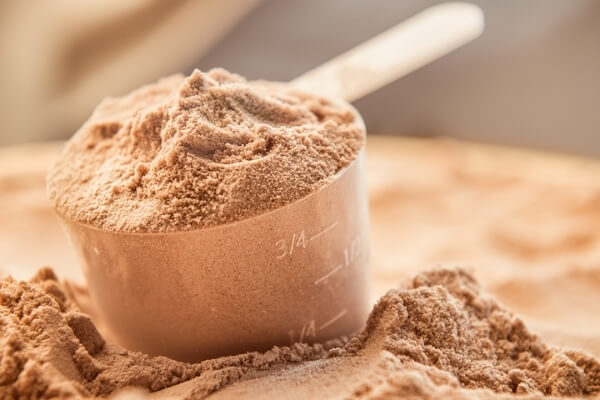What is Protein?
Protein is one of the key ‘macronutrients’ that is essential to your diet, alongside Carbohydrates and Fats. Protein is made up of Amino Acids, Amino Acids are the foundations in which proteins need to develop. Eight out of around 20 Amino Acids have been deemed as essential to the human diet: Leucine, Isoleucine, Valine, Threonine, Methionine, Phenylalanine, Tryptophan and Lysine. All the key Amino Acids have different purposes that make up the molecular DNA of Protein.
Protein is a key component of your body, every cell in your body contains Protein and your hair and nails are mostly made of it as well. Your body uses it to build and repair body tissue, and it is needed to make enzymes, hormones and other body chemicals as it is a very important building block for body development.
How much Protein Should I Eat?
The Daily Reference Intake (RFI) for Protein is 0.8g per kilogram of bodyweight or 0.36g per pound of body weight. However, it has been scientifically proven that increasing your Protein intake can boost your metabolism and reduce your appetite. One study showed that a Protein intake of 30% per day can help the metabolism by 80-100 calories per day. The more your body needs to repair itself, then the more Protein you would need to keep your body in a healthy way. There are claims that a high Protein diet causes problems within kidneys, however, this has never been proven but obviously having an obscene amount of Protein per day can be dangerous but there is no proven limit as it varies from person to person.
Using Protein to gain Muscle and Strength.
Muscles are developed using mostly Protein, and as with most components of the body, muscles are consistently being damaged and repairing themselves. Therefore, to gain more muscle, your body needs more Protein available for synthesising than it is breaking down. Because of this, people who want to increase their muscle need a higher Protein intake, which studies show is around 2.2g of protein per kg of body weight or 1g of Protein per pound of body weight.
High Protein Diets
There are numerous benefits for having a high Protein diet. Protein is proven to curb hunger, meaning the higher the protein content in your meal, the fuller you will feel after it – which can help you maintain a healthy weight. Protein also helps your body recover faster after a workout and can help build lean muscle which reducing muscle loss.
There are plenty of ways that you can up your Protein intake. The clear and obvious one is introducing higher Protein foods into your diet. Chicken Breast, Cottage Cheese, Lean Beef and Tuna are all foods that have a Protein content of over 50% whilst foods such as Yogurt, Eggs, Lentils and other types of Fish are still proven to have a very high Protein content.
The other big thing used to up a Protein intake is supplements, supplements often replace carbohydrates and fats with protein to help you feel fuller and make it healthier than normal food. There are plenty of different types of supplements used to increase a person’s protein intake across the day such as: Protein Powders like Whey, Diet Whey and Casein which is used to increase someone’s protein intake if they have not hit their protein goals for the day; RTG Shakes and Protein Bars, which are used to either help someone towards their protein goal or just as a snacking alternative. . Each supplement is designed to help its user in a certain way, for example Casein Protein is usually taken before bed and releases protein into the body throughout the night whilst you are asleep.
